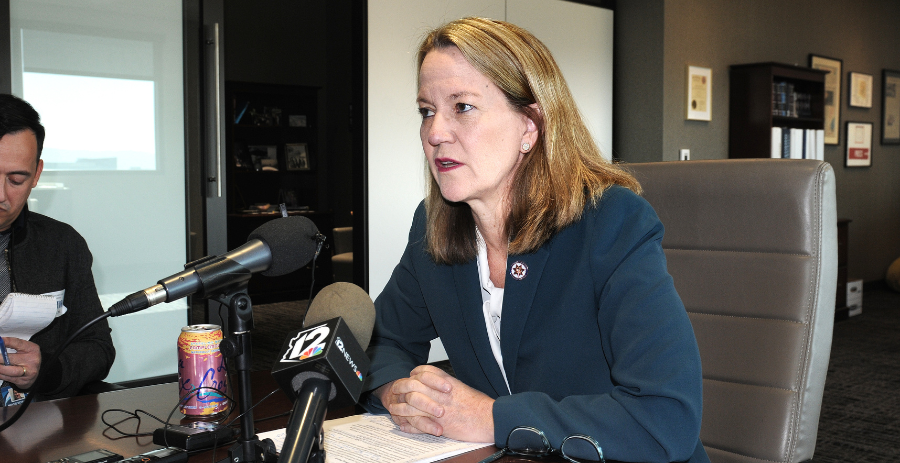arizona
Kris Mayes Struggles: A Deep Dive into His Disappointing Win-Loss Record

Kris Mayes, Arizona’s Attorney General, has faced significant challenges in her legal pursuits against the current administration. Many observers note that her press coverage often highlights her lawsuits, yet her performance in court raises questions about her effectiveness. While her vocal critiques of the government resonate with some, her record tells a different story.
One of her most notable recent failures involved a lawsuit aimed at shutting down the new federal Department of Government Efficiency. A federal judge, appointed by Bill Clinton, rejected Mayes’ request for an injunction, marking a setback in her aggressive legal strategy.
Additionally, Mayes faced backlash from her own party after suing Governor Katie Hobbs over budget cuts to her office’s resources. This legal action was met with accusations of frivolousness, leading to her agreeing to pay attorney’s fees rather than prolonging court disputes. Taxpayers, unfortunately, are left to cover these costs, revealing a troubling fiscal dynamic.
Her legal advice has also led to negative outcomes for other municipalities. Phoenix, acting on Mayes’ recommendation to adopt prevailing wages, found itself embroiled in a lawsuit that ended in defeat, elucidating the risks of relying on her counsel.
Mayes’ legal pursuits extend to local governments, as evidenced by her lawsuit against Cochise County regarding their election processes. This case, which resulted in a court rebuke for incorporating irrelevant political arguments, further illustrates her questionable legal strategies.
Moreover, her ongoing legal endeavors against local officials in Apache County, including an indictment of the county attorney, created a chaotic situation that forced the county to grant a lucrative no-bid contract for prosecution services to the person who originally raised complaints against the attorney.
Her prosecution of alternate electors has also encountered legal setbacks. A recent ruling indicated that accusations against the defendants might have been motivated by retaliation for their constitutional rights. This adds another layer of complexity to an already controversial case, as Mayes grapples with the challenge of proving substantial grounds for her actions.
Critics also highlight Mayes’ selective enforcement of laws, particularly her efforts to dismantle the death penalty. Her refusal to act on certain legal matters while pursuing others raises ethical questions about her priorities as Attorney General.
Ultimately, while Mayes generates headlines with her legal battles, her win-loss record reveals considerable shortcomings. Observers suggest her approach prioritizes political agendas over legal principles, potentially putting Arizona at a disadvantage. The question remains: Will she shift her strategy to better serve the state’s legal framework?
Tim La Sota is a Phoenix lawyer specializing in government practices, including election law, regulatory issues, and the complex interaction between governmental entities and the law.


















